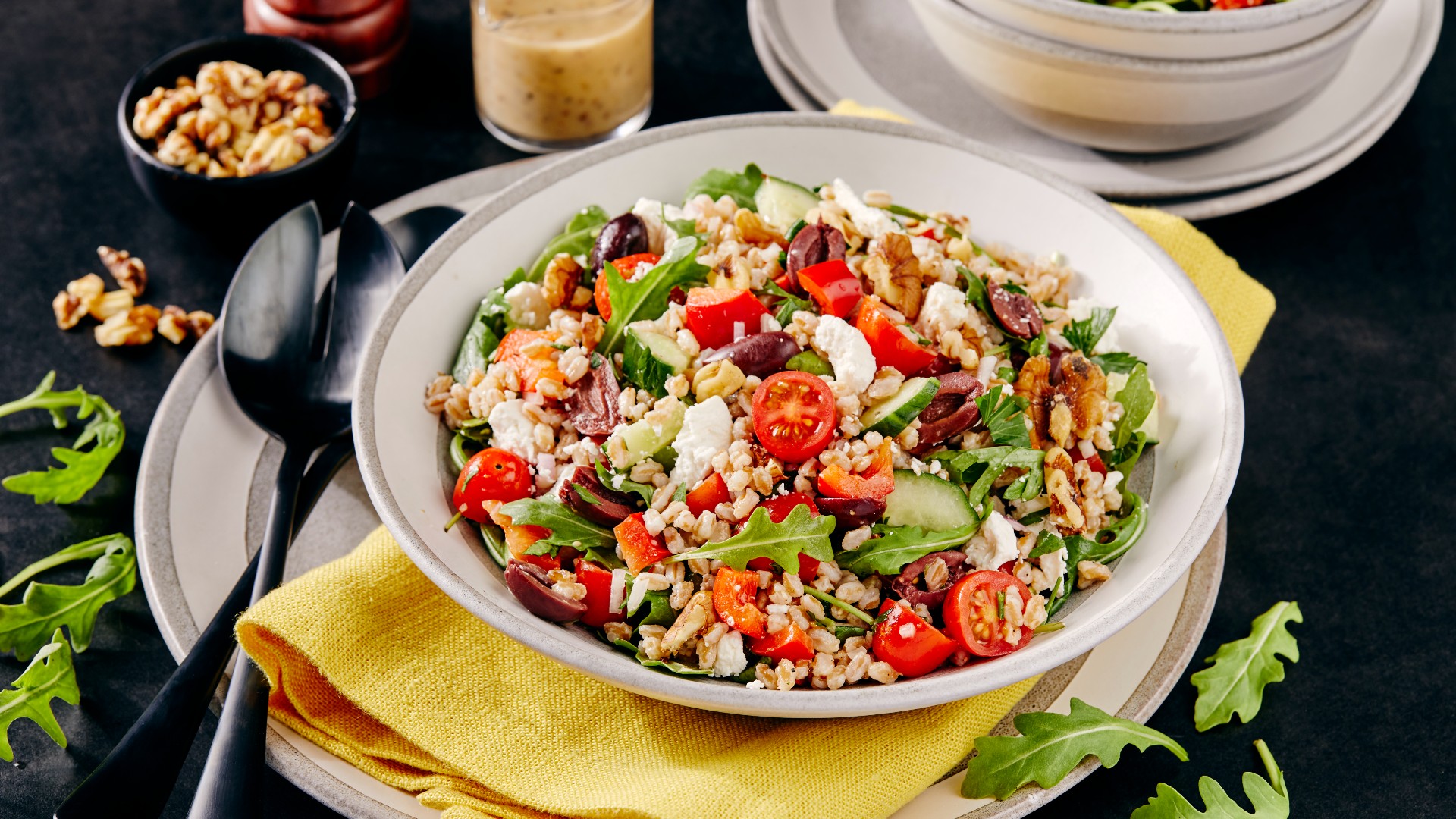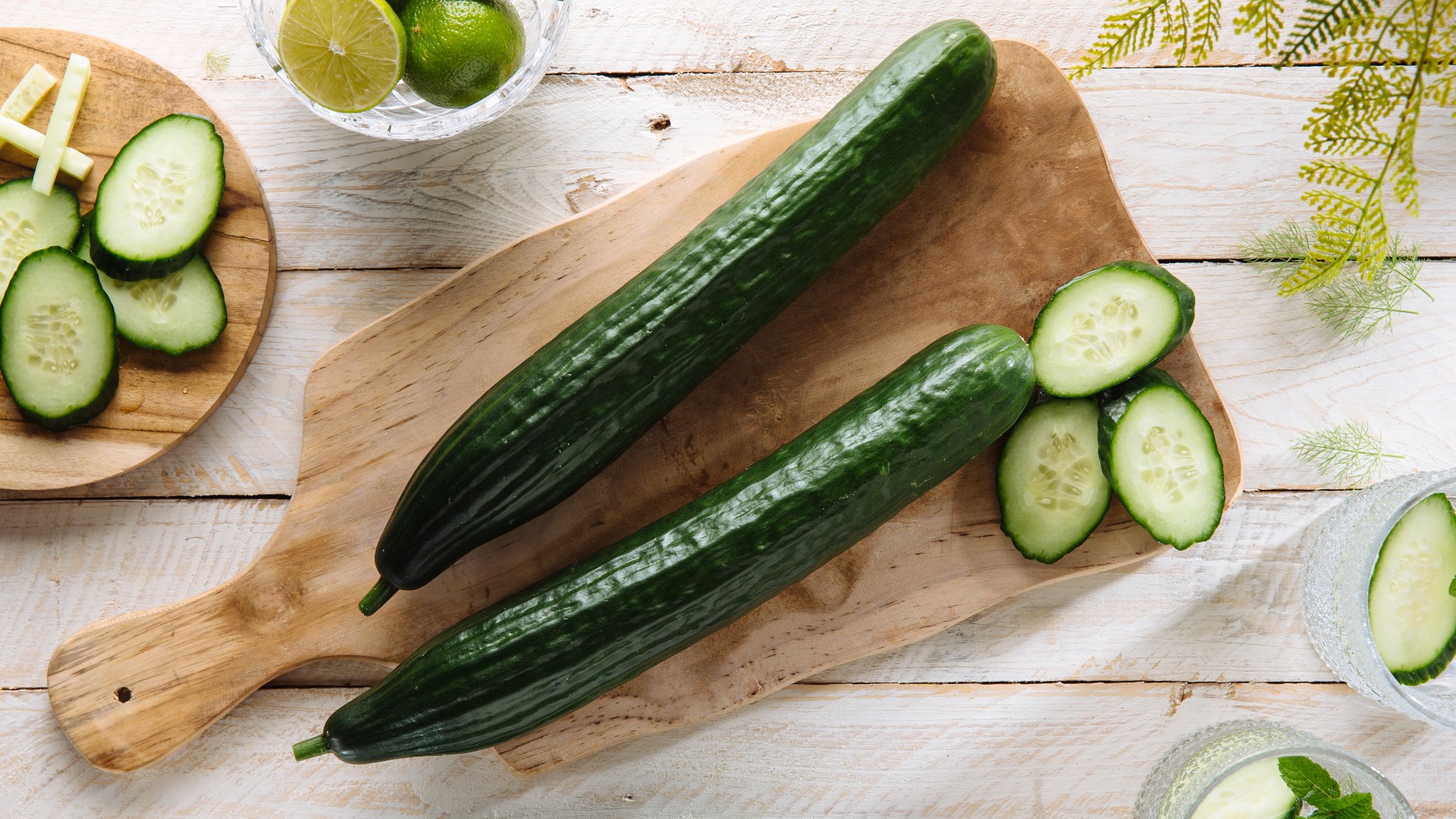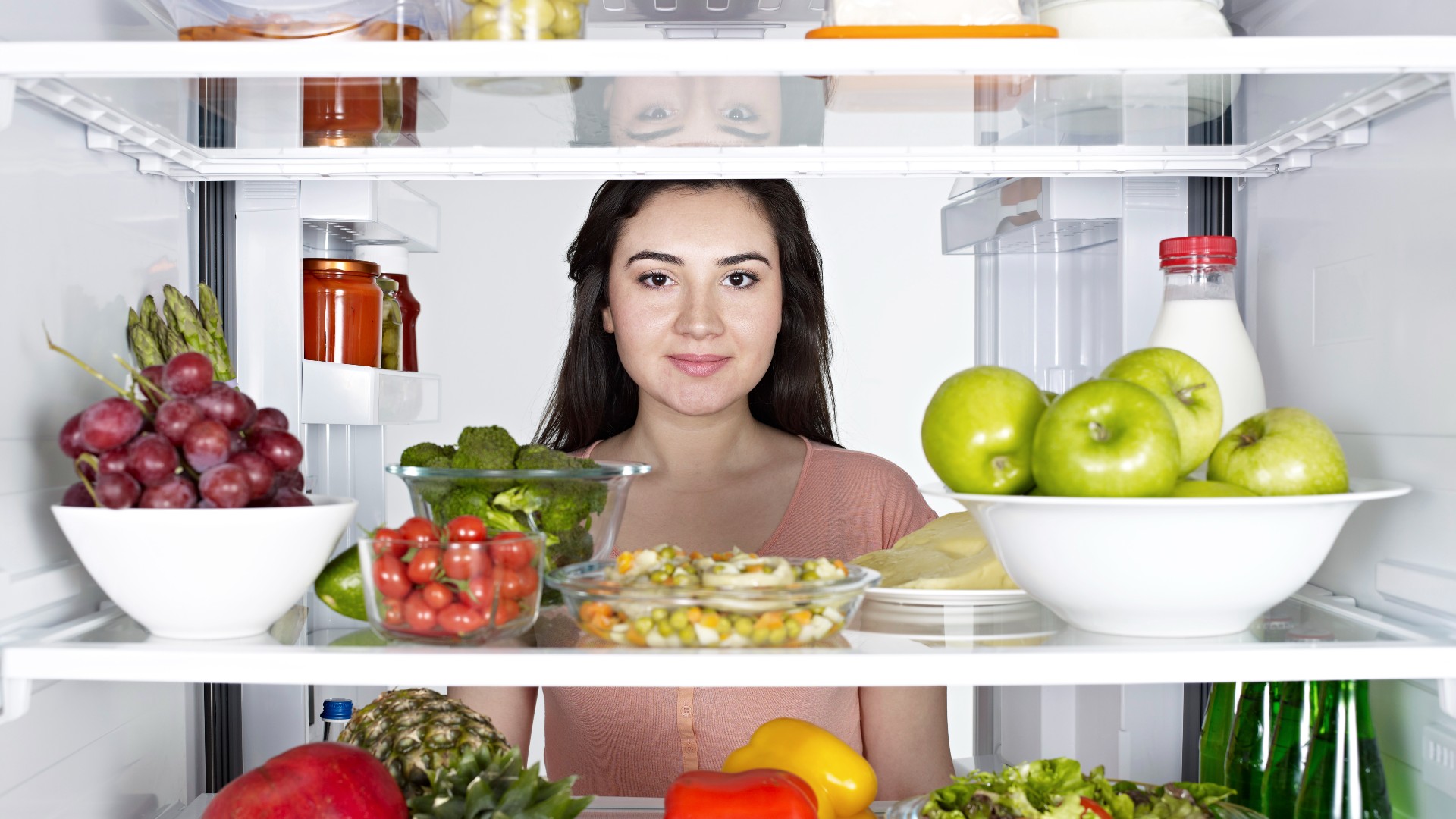How to follow a plant-based diet for weight loss
Looking for a plant-based diet for weight loss? A dietitian weighs in

If you are looking for an effective way to slim down, it’s worth considering a plant-based diet for weight loss. Scientists are increasingly convinced that vegetarian and vegan diets may be a particularly effective approach in the fight against obesity, as stated in a review recently published in the American Journal of Lifestyle Medicine.
There are several reasons why carefully planned vegan and vegetarian diets may help you drop a size or two. To start with, the basic principle of weight loss is a calorie deficit, and plant foods tend to have low calorie density. They are also rich in dietary fiber. Fiber keeps your appetite in check and regulates your blood sugar levels. Vegan and vegetarian diets may also have a beneficial impact on our gut health and inflammation levels — two factors that may contribute to excess body weight.
At the same time, not every diet based on fruit, vegetables, and whole grains can help you shed unwanted pounds with ease. To maximize the fat burning potential of your vegan or vegetarian diet, certain tweaks may be necessary. Here, we discuss how to follow a plant-based diet for weight loss to get the best possible results, with tips from registered dietitian Rosie Martin.
If you want to switch to a plant-based diet, but aren’t sure where to start, check out our article on the plant-based diet for beginners for useful tips and advice. And if you are struggling to get enough protein, supplementing with the best vegan protein powder can help you easily top up your intake. The best smart scales can help you track your progress, with high-tech insights.
1. Avoid highly processed foods
Highly processed foods tend to have low nutritional quality, even if they are labeled as vegan and marketed to health-conscious customers. Many assume that all plant-based products are good for you. However, when these foods undergo intense processing, they are usually stripped of healthy nutrients, including dietary fiber, vitamins, and minerals. Typical examples include products rich in simple carbohydrates, such as white bread, white pasta, and white rice, as well as ready meals, canned soups, and certain meat substitutes.
Highly processed foods also tend to be relatively higher in calories. “Humans eat a similar weight of food each day; if much of that food is energy-dense vegan convenience foods, then far more energy will be taken in, alongside sugar, salt and saturated fat,” says Martin. “If much of that food is, instead, low energy-dense whole, plant foods, then we can eat more, fill our stomachs and feel satisfied, but we will have taken on much less energy, and much more fiber, water, polyphenols, and antioxidants that are beneficial for health and weight management.”

Rosie Martin is a U.K. registered dietitian and health coach. She has worked as an NHS dietitian for four years in varying roles in acute and community hospitals. She continues to do so in her role as Employee Health & Wellness Dietitian for NHS staff.
So if you want to follow a plant-based diet for weight loss, focus on fresh produce and minimally processed foods. For instance, make sure that most of your carbohydrates come from whole grains, such as brown rice, rolled oats and quinoa. For more great examples, check out these seven healthy low carb grains to include in your diet.
2. Eat more non-starchy vegetables
If you want to follow a plant-based diet for weight loss, it is a good idea to cut down on starchy vegetables, such as corn, potatoes, butternut squash, carrots and beetroots. It is true that these foods are packed with essential nutrients and may provide many benefits to our health. At the same time, they are exceptionally rich in starchy carbohydrates. Although they are a type of complex carbohydrates that help keep our metabolism in check, eating too much starch may get in the way of your weight loss efforts.
Non-starchy vegetables are low in calories and carbohydrates, and exceptionally high in dietary fiber. These include leafy greens, such as kale, spinach and lettuce, as well as broccoli, cauliflower, tomatoes, leeks, celery and cucumbers.
“Fiber is the key to helping us feel physically full as well as to feed our beneficial gut bacteria. Our gut bacteria play a crucial role in weight management,” says Martin. “When they break fiber down, they produce substances called short-chain fatty acids (SCFA). These SCFAs help regulate our hunger hormones, control our blood sugar levels, help us feel happier, and even support our immune system.”
Try to include non-starchy vegetables in every meal, and aim to fill at least half of your plate with them. This way you will significantly lower the calorie density of your diet, while getting a notable amount of dietary fiber.
- Related: Is fiber good for weight loss?
- Related: 4 types of vegetarian diets

3. Get enough good quality protein
When following a plant-based diet for weight loss, make sure you get enough good quality protein. Cutting down on energy-dense vegan foods like beans, peas, nuts and seeds helps decrease the overall calorie value of your diet. At the same time, these foods are particularly rich in protein. Without enough of them, it may be more difficult to get enough of this crucial nutrient. One solution to this issue is to include more of the best vegan sources of protein in your diet, such as tofu, tempeh, and seitan. Another is to top up your intake with the best vegan protein powders.
There are several reasons why protein is good for weight loss. One of its main roles is to build and maintain our muscle mass. The more muscle we have, the higher our metabolism, and the more calories we burn on a daily basis. Protein may also help increase your energy levels and keep your hunger at bay by making you feel fuller for longer, according to a review in the Frontiers in Endocrinology journal.
4. Prepare your meals in advance
When life gets hectic, many of us find it difficult to follow a healthy diet. We may struggle with finding the time to cook a nutritious meal from scratch, or we may not have the energy to spend long hours in the kitchen.
One of the downsides of following a plant-based diet for weight loss is that it may be very time-consuming, particularly if you have to peel and cut your vegetables. To avoid the temptation of a takeaway and to stay on track no matter the circumstances, keep some prepared meals and snacks in your fridge at all times. For example, develop a habit of meal prepping and batch cooking on certain days of the week. Another good idea is to ensure you always have a healthy sweet treat ready for when you crave something sugary.

5. Keep it balanced
Keeping your plant-based diet balanced and versatile is another important aspect to consider when trying to lose weight. “Eating this way will maximize the fiber and beneficial plant compounds, increase gut bacterial diversity, improve insulin sensitivity, reduce your energy intake without leaving you hungry, and support you to reach your best weight,” explains Martin.
What could this mean in practice? “An easy way to plan your diet is to imagine a circle representing your whole diet over the course of a day or week,” she advises. “Aim to cover half the plate with colorful fruits and vegetables like apples, berries, broccoli, bananas, beetroot, carrots, cauliflower, cucumber, and dark leafy greens like kale and spinach.
“Fill one quarter with healthy wholegrains like brown rice, quinoa, wholewheat pasta, oats and wholemeal bread. Fill the final quarter with high protein plant foods such as beans, lentils, tofu and tempeh. Top your meal with a small amount of healthy fats such as seeds or avocado.”
This article is for informational purposes only and is not meant to offer medical advice.
Sign up for the Live Science daily newsletter now
Get the world’s most fascinating discoveries delivered straight to your inbox.

Anna Gora is a health writer at Live Science, having previously worked across Coach, Fit&Well, T3, TechRadar and Tom's Guide. She is a certified personal trainer, nutritionist and health coach with nearly 10 years of professional experience. Anna holds a Bachelor's degree in Nutrition from the Warsaw University of Life Sciences, a Master’s degree in Nutrition, Physical Activity & Public Health from the University of Bristol, as well as various health coaching certificates. She is passionate about empowering people to live a healthy lifestyle and promoting the benefits of a plant-based diet.










